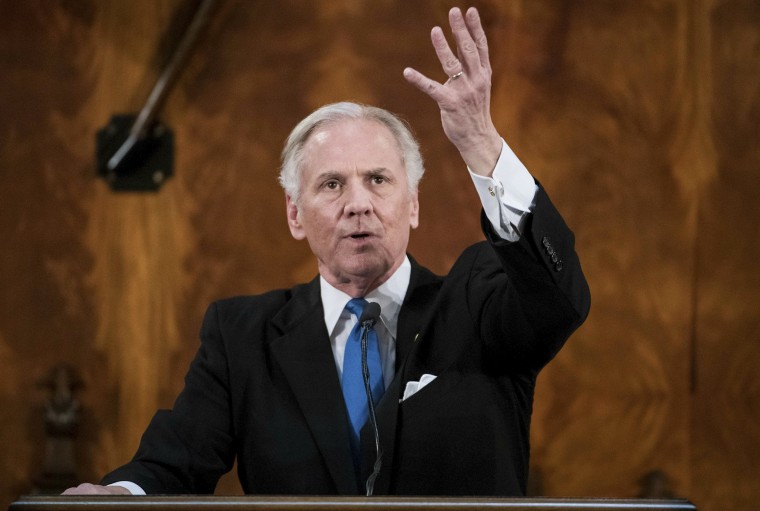It'd be an overstatement to say every prominent Republican official has condemned President Joe Biden's new vaccine policy. Vermont Gov. Phil Scott, for example, was quite complimentary, expressing his appreciation for the White House's approach.
It came a day after the Republican governor created a new vaccine requirement for public-sector employees in the Green Mountain State.
Scott does not, however, have a lot of company in the contemporary GOP. The NBC affiliate in Columbia, S.C., for example, reported yesterday on South Carolina Gov. Henry McMaster's response to Biden's efforts.
"The American Dream has turned into a nightmare under President Biden and the radical Democrats," said McMaster. "They have declared war against capitalism, thumbed their noses at the Constitution, and empowered our enemies abroad." In the following tweet McMaster quoted: "Rest assured, we will fight them to the gates of hell to protect the liberty and livelihood of every South Carolinian."
To be sure, when evaluating furious reactions, it's tough to top "fight them to the gates of hell," but McMaster wasn't the only Republican who sounded hysterical in response to the White House's efforts to end the pandemic.
Rep. Dan Crenshaw of Texas, for example, accused the Biden administration of "trying to start a full-on revolt." Josh Mandel, a GOP Senate hopeful in Ohio, called on Americans to reject the president's policy, adding that they "know what to do" when "the gestapo show up at your front door."
J.D. Vance, Mandel's primary rival in Ohio, also called for "mass civil disobedience."
The question I'd love Vance and others like him to answer is simple: How would mass civil disobedience help end the pandemic? To borrow the South Carolina governor's line, how would fighting the Biden administration's vaccine policies "to the gates of hell," bring this public health nightmare to an end?
The answer, of course, is that it wouldn't, and therein lies the problem: For far too many on the right, ending the pandemic isn't the principal goal.
Indeed, it's why of all the Republicans who condemned Biden's policy yesterday, none of them said it would be ineffective in combatting the public health crisis. They instead bypassed the efficacy question altogether, since it's simply not part of their political offensive.
The president and his detractors are having two very different kinds of conversations. Biden's focus is on ending the pandemic and saving lives. His Republican critics are focused on amorphous concepts of "freedom" – as defined by conservative ideologues – and exploiting political opportunities for partisan gain.
When it comes to Covid-19, public-health steps can be reduced to a simple question: Will the decision help end the pandemic or help extend it? The fact that so many Republicans find this binary dynamic irrelevant helps explain why the United States is still struggling so badly with the crisis.
